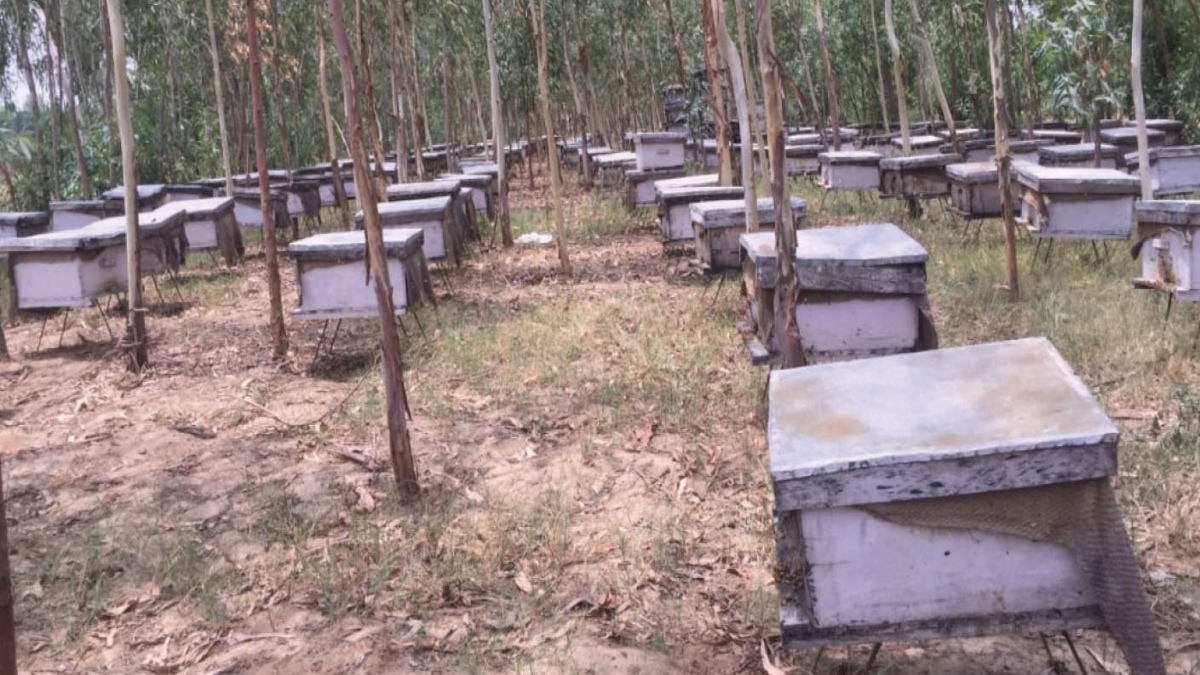A lot of people I know have what we call a ‘sweet tooth’. It has been a difficult time for many with outside food being a big ‘no no’ and the worrying thing about immunity too, considering how unhealthy white sugar can be. Even though this pandemic has seen a major lifestyle change across all age groups, there is no real replacement for sugar. While brown sugar, gur or honey have been used to replace the white stuff, there’s still no real substitute since most of these are commercially produced that have either been diluted or have substances added to get the right consistency and colour, which takes away the honey’s natural healing properties. Most of the honey we find in grocery stores is pasteurised. The high heat may kill unwanted yeast, can improve the colour and texture, removes any crystallisation, and makes each batch look, taste and feel exactly the same. However, this cannot be achieved without additives due to which many of the beneficial nutrients are destroyed.



Called as the “elixir of life” by some, raw honey is that miracle product which never spoils. Literally. Never. So many health benefits, but we never really get our hands on the original stuff easily. The cost to begin with plays crazily on one’s mind, assuming how unaffordable it could be! Then, the worry about getting the genuine stuff remains questionable till it is certified. Despite the odds, the good news is that some good Samaritans have taken it upon themselves to bring the world of this beautiful liquid gold into our homes with due certification of being raw and without any additives.
Vipin Pachauri and Nisha Sodhi brought in Organic Potli at a time when we were drowning in Kadha—the peak of Covid—and it was such a relief to get these raw honeys from different orchards (too), each with a different colour and taste. “We realised that it was high time that we take nature’s bounty to people because a lifestyle change is the need of the hour. Honey is extracted by the honey collectors who have permits issued by the forest department for limited areas. The wild honey in Uttrakhand is collected from ranges of forest from Tanakpur to Dehradun,” says Vipin. “When we say a ber honey or a wild-flower honey, it is actually an orchard from where the hive is. Since the bees are from that orchard, there is a slight tinge of that taste in the honey; it’s not an added flavour that is being referred to.”
Honeylicious is the brainchild of Abhigyan and Anshuman Bali, a company they formed some time ago again with the motive of taking pure, raw, unpasteurised honey to the world; their original business having been the supply of honey to big organisations for bottled honey. Honeylicious boasts of a wide range of honeys, starting from the fruitier variety like litchi, ber, multiflora and jamun to the more spicy, robust ones like eucalyptus, saunf and ajwain. The best part: All their honey are harvested by the people behind Honeylicious themselves—in short, they are beekeepers!
“This is our passion; we have other businesses, but this is the best thing we have done for the people of India. It would be a great thing if the people of this country are able to make a lifestyle change for a healthier tomorrow. Our model is simple: we take our boxes to the farms with the right flora; the bees produce honey, most of which we take out easily and leave some back so that the process can go on; the honey is strained using a cloth; and, the honey is ready! Extreme care is taken to ensure that bees are not harmed in any way,” says Anshuman Bali.
On the same note, Vipin adds, “We have been working professionals. However, as a habit, we have been sourcing fresh and pure food items and ingredients directly from the farmers thereby giving them a chance at better livelihood opportunities. Hence, we wanted to bring this experience of wellness to as many people as possible. Hence, every time you order from us, you act as a catalyst of change empowering and supporting the local communities in a big way. All our products are prepared fresh and are hygienically packed in small batches without the use of chemicals, preservatives, enhancers.”
If we take, for example jamun honey, it has a slight aftertaste and the aroma of the fruit, while ber honey is lighter in colour with a nuttier taste and the wildflower honey is goldenish in colour and very sweet. My personal favourites are the eucalyptus (which is also their signature honey), jamun and ajwain honeys: while the former is very dark in colour with a strong taste and smell, which is very extremely therapeutic, the latter is so flavourful that it can be consumed as it is.
With the kind of lifestyle changes we see today, honey seems to be playing a bigger role than jaggery because unlike the latter, which is seasonal, honey can be extracted and consumed all year. While city folk are getting extremely conscious about what they consume nowadays, the first big change that is prescribed by health consultants (could be doctors, yoga teachers, dieticians or nutritionists), is to avoid sugar. Sunita Mehra, a publishing professional, says: “I stopped having sugar in my tea years ago, but I have a sweet tooth and I become weak when it comes to desserts. However, if there are some sweets that are made with gur or raw honey, I will be able to have my desserts guilt free.”























